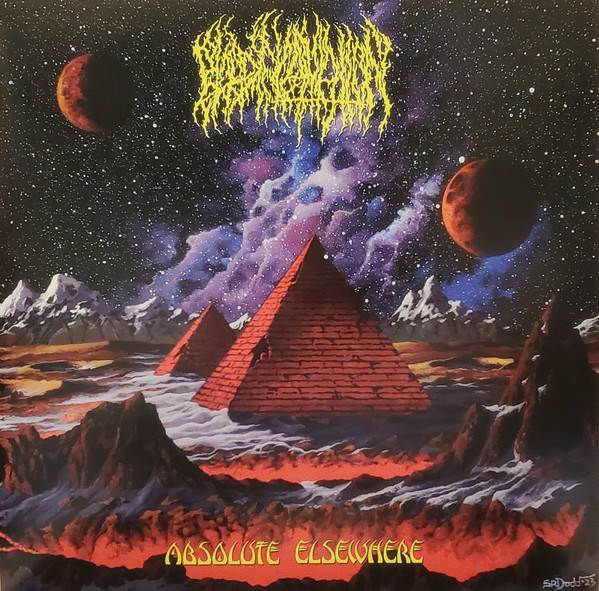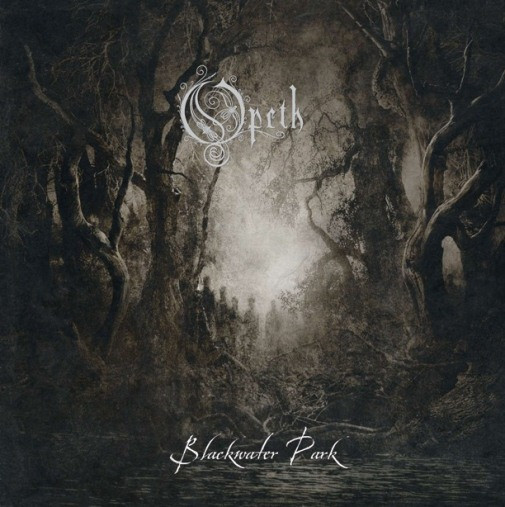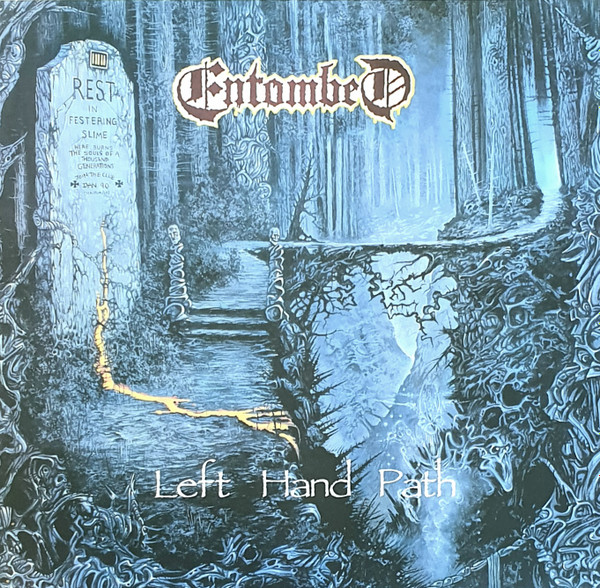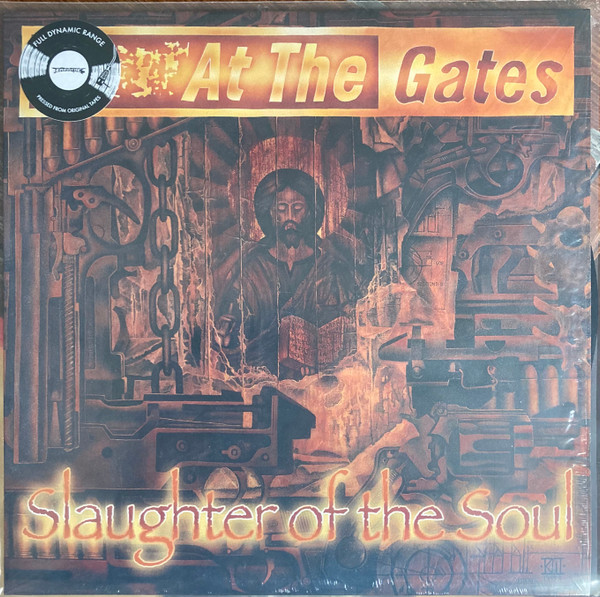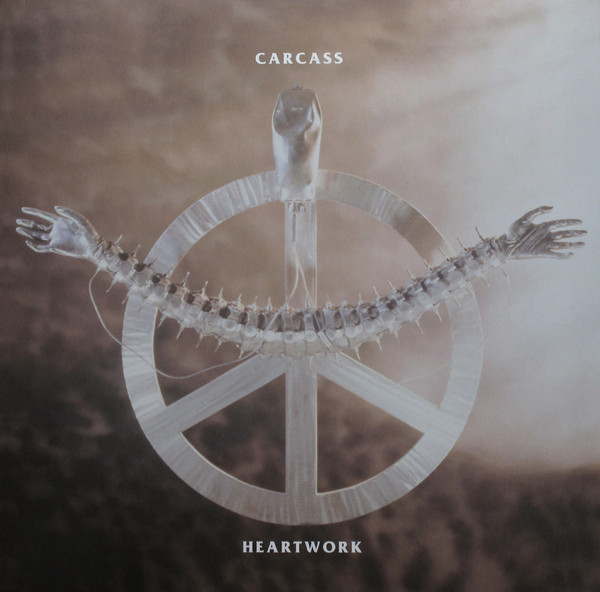A Guide to the Expanding Galaxy of Cosmic Death Metal
Cosmic death metal blends brutal riffs with interstellar themes, cosmic horror, and sci-fi weirdness.
Over the last decade, a gravitational pull from deep space has taken hold of the heavy music underground: cosmic death metal. This subgenre fuses the aggression of classic death metal with themes of Lovecraftian cosmic horror, science fiction, and disorientation. Picture Gorguts caught in a wormhole, or Death jamming on the event horizon after discovering a black hole at the edge of the galaxy. It’s as angular as a ship navigating an asteroid field, as petrifying as Cthulhu’s gaze, and as expansive as the outer rim.
Compared to traditional death metal, these bands are less focused on gore, torture, and war, and more interested in scale, space, and the uncertainty that lies on the other side of the universe. Riffs spiral and expand. Vocals sound distant and warped. Production leans into atmosphere and psychedelic effects.
Cosmic death metal isn’t a hard-defined subgenre, yet. And like so many subgenres, its origins are up for debate. Most students of the metal encyclopedia point toward the short-lived alien abstractions of Missouri’s Timeghoul, and the sci-fi visions of the Morbid Angel follow-up group Nocturnus, both of which formed in the late ‘80s. After these two bursts of radio signal, there was largely silence. Metal bands remained fascinated with the unknown surrounding Earth, the most notable cluster being several tech death bands of the late aughts like Rings of Saturn and The Faceless. But in the late 2010s, a new generation of explorers provided us with new findings.
The following ten records provide a good starting point. Each one pushes the genre in a slightly different direction. Together, they show just how flexible and inventive this space-focused strain of death metal has become. If you’re looking to explore beyond the essentials, there’s more to dig into. Bands like Gigan, Devoid of Thought, Astral Tomb, and Warp Chamber are also early entrants into the rapidly expanding scene.
Wormed
Krighsu (2016)
Despite being a loosely connected subgenre, many point to 2016 as the starting point of the current wave. The two main groups that led the expeditions are Blood Incantation and Wormed. Spain’s Wormed is undoubtedly the more barbaric of the two, taking inspiration from the chaotic final moments before being sucked into a black hole rather than the vast nothingness. Krighsu is a filthy, asphyxiating assault. Starting with the opener, “Pseudo-Horizon,” vocalist Phlegeton begins with the most guttural of growls as the deformed instrumentals suck the air out of the mix. The band makes clear that they don’t come in peace.
A glance at the tracklist provides an apt description of what the brave explorers who venture forth expect. “The Singularitarianism,” “Eukaryotic Hex Swarm,” “Computronium Pulsar Nanarchy,” and “578839330816,1” offer clues to the incomprehensible chaos in store. Metalheads who prefer to dive in headfirst, this is the place to start.
Blood Incantation
Starspawn (2016)
Citing Timeghoul as an influence, Denver-based Blood Incantation took the lofi genius that the pioneering explorers presented in the ‘80s and infused it with squelching synthesizers, modern effects, and just enough production polish to clear things up, but not sand it down. Starspawn introduced a band focused on dense, ambitious compositions. The tracks bend and shift constantly. Riffs soar from Kerry King-like highs to chugging lows, laying atop knotty drums and vocals straight from the maw.
After its release, Starspawn became an underground hit, garnering attention both within and outside the metal scene. The record set them up for a follow-up that would come to define the scene, 2019’s Hidden History of the Human Race. It wouldn’t be right to include every Blood Incantation record in this primer, but every one is worth a spot in the space shuttle’s CD player.
Ulthar
Cosmovore (2018)
Named after a town in H.P. Lovecraft’s Cthulhu mythos, Ulthar makes their agenda known immediately on Cosmovore. The title track opens the record with a black metallic bang, relentlessly driving forward while death and thrash riffs fight to hang on. Here is where the band thrives, and this is where they stay for most of their 2018 debut. However, with riffs as filthy as the ones found in the intros of “Infinite Cold Distance” and “Entrophy / Atrophy,” the expansive barrage of cosmic violence is welcome.
From the front-to-back Cosmovore rips, unconcerned with the listener’s feelings. Following the breakneck self-titled intro, the group offers a hint of relief with the intro notes of “Solitarian,” which, however, leads directly back into the charging black metal tempos the group establishes on the intro. This successful formula repeats until the closer, the 13-minute long “Dunwhich Whore,” a whaling epic, that ties this interstellar transmission together.
Nucleus
Entity (2019)
Hailing from Chicago, Nucleus is likely the most thrash-y entry on this list, but their alien feet remained firmly in death territory. Fast and nasty, Entity tells the tale of a smoldering earth, now being approached by species led by an entity deemed the Formless One, with an insatiable need to consume. In short, classic cosmic horror. Add that storytelling on top of the explosive riffs and growling vocals, and you’ve got a record that hits all the marks of the subgenre, but still manages to separate itself with its quicker, punchier sound.
Cryptic Shift
Visitations From Enceladus (2020)
Cryptic Shift circled the cosmic death metal orbit for almost a decade before their full-length debut, Visitations From Enceladus. Meeting in school in the early 2020s, the UK group released several singles until their first complete foray into the ether, their EP, Return to Realms, in 2016. Then, four years later, the band dropped their monstrous debut.
The group begins with “Moonbelt Immolator,” a 25-minute ripper that rises from ambient noise to fast-paced punishment. The opener is the star of the record, but the shorter follow-up tracks aren’t dismissible by any means. On “(Petrified in the) Hypogean Gaol” is an old school death metal heater, packing in all the tropes with precision. Then, after a gnarly intro, the group takes their first reprieve on “The Arctic Chasm,” stretching things out before ramping up into the closer, the ear-shredding “Planetary Hypnosis.”
Vertebra Atlantis
Lustral Purge In Cerulean Bliss (2021)
Spearheaded by the Italian one-man-band specialist, Gabriele Gramaglia, Vertebra Atlantis‘ Lustral Purge in Cerulean Bliss is one of the more adventurous entries here. Here’s a record that embraces the stranger, unknown side of the void. Whether it be the immediate beatdown carnage of the opener, “Agoraphobic Solipsist,” off-kilter melodies in the middle of “Carnal Denouement,” or the titanic choral pads behind the title track, this record never sticks to a groove; it maneuvers through them, passing up hundreds of small great moments along the way. Let the Cerulean Bliss wash over you, and enjoy the ride.
Artificial Brain
Artificial Brain (2022)
Artificial Brain’s 2022 self-titled is an absolute hallmark of the genre and a swan song for the band’s vocalist, Will Smith (no, not that one). Frontmen come and go, but Smith’s impossibly low vocals are a hallmark of the record, acting as much of a low-end force as Samuel Smith’s grueling bass. Needless to say, listeners who appreciate a hearty pig squeal will find immense comfort here.
As defining as Smith’s vocals are, the rest of the group’s musicianship propels the ship in equal measure. The guitars are piercing, stabbing, and chugging in equal measure, almost like a dog trying to break free of a leash. Keith Abrami’s drums are mechanical in their consistent beating, but the perfect loose-but-sloppy production humanizes them. The final track, “Last Words of the Wobbling Sun,” is the perfect summation of the group at this point: Dynamic, brutal, and full of flair.
Tomb Mold
The Enduring Spirit (2023)
Tomb Mold is similar to Blood Incantation in that any of their records deserve mention here. While not as heavy on space themes, Primordial Malignity and Manor of Infinite Forms are threatening attacks of contemporary death metal. The follow-up, the disgusting Planetary Clairvoyance, is as much of a defining record of the genre as Incantation’s Hidden Race. It’s on The Enduring Spirit, though, where the group shattered any previous notions listeners may have had.
The Enduring Spirit is a band blossoming with creativity. Whereas on Planetary Clairvoyance, the group mastered the art of the caveman riff, here they zig-zag through expansive passages, prog metal riffs, and even a few moments of smooth jazz. Don’t take that as a sign of a band softening up, though. In this eclectic universe, there is still enough heaviness to collapse a star.
Cosmic Putrefaction
Emerald Fires Atop The Farewell Mountains (2023)
When Gabriele Gramaglia isn’t pumping out music under the banner of Vertebra Atlantis, he’s doing so as Cosmic Putrefaction, his other, main solo project. While the two bands share more similarities than differences, Gramaglia seems to be at his most capable when recording as Cosmic Putrefaction. Once again, the Italian leans progressive here, traveling through disparate strains of metal. A touch of doom here, a dash of symphonic black there, some sprinkles of old school, all packaged in under the wild cosmic horror art that is synonymous with all of his work.
Among the Cosmic Putrefaction discography, Emerald Fires Atop the Farewell Mountain stands out for its ambition and production. While production behind solo death/black metal projects can be intentionally scuffed, Emerald Fires is clear. With everything audible, Gramagila’s genius becomes all the more impressive. It’s weird, it’s dark, and it’s an essential listen.
Blood Incantation
Absolute Elsewhere (2024)
There are moments in some bands’ lifecycles where everything snaps into place, and the vision becomes clear, perfectly executed. For Blood Incantation, that came on 2024’s Absolute Elsewhere. Following the success of 2019’s Hidden History of the Human Race, the band surprised all its fans with a kosmiche-style ambient album, Timewave Zero. Despite confusing some fans, the complete reversal in their tracks worked. When the group swung back toward its middle ground on Absolute Elsewhere, they reached a new, more kaleidoscopic center that’s equal parts death metal, prog, and psychedelic.
Compared to the band’s previous efforts, Absolute Elsewhere is far more synth-focused (it even features a guest appearance from Berlin-school icons Tangerine Dream, thematic, and varied. Across two side-length movements (“The Stargate” and “The Message”), the band ascends. It’s as unforgiving as the cosmos, as strange as the endless mysteries we can dream up about galaxies, and as varied as the stars across the night sky.
Explore Death Metal Classics
KEEP DIGGING
Don’t miss a beat
Subscribe to Discogs’ email list to learn about sales, discover music, record collecting guides, product tips, limited edition offers, and more.










